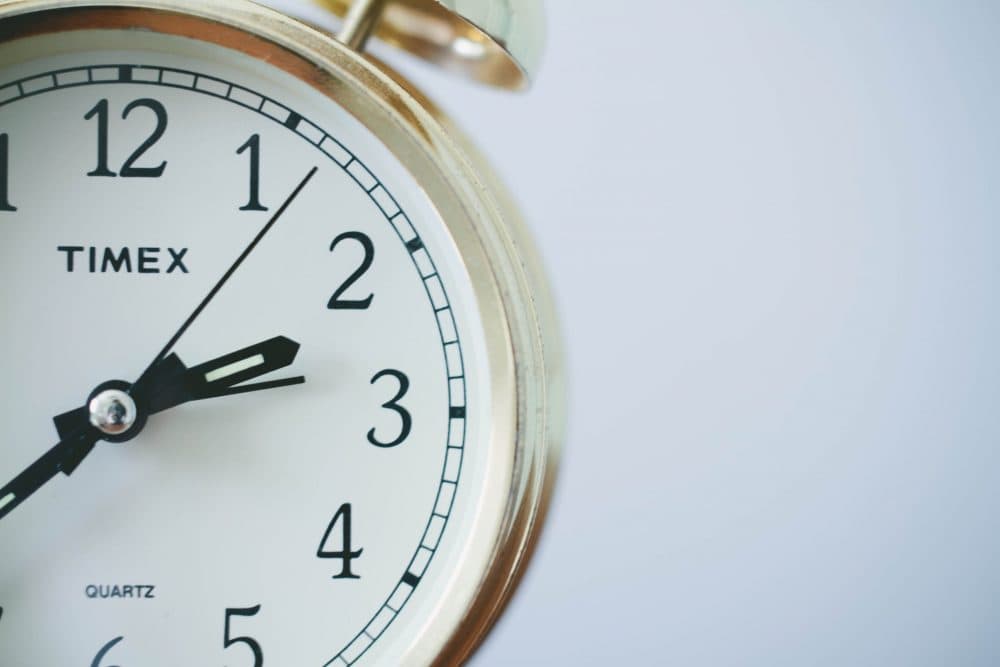Advertisement
Why We Procrastinate — And How We Can Stop
Resume
For many people, procrastination is a strong urge that can derail even the simplest tasks. It's tempting to put off writing a paper or paying bills or taking care of something important and instead check Facebook or turn on the television.
Here & Now's Jeremy Hobson talks with Carleton University psychology professor Tim Pychyl (@procrastwitate) about why procrastination is such a common problem, and how we can stop doing it.
Interview Highlights
On why we procrastinate
"Well there's lot of kinds of delay, and procrastination is one form of delay. It's an irrational form of delay because it's a voluntary delay of an intended act, even though we figure — all things considered, the world's not perfect — we figure we'll probably be worse off for it, so it's a self-defeating delay. There's really no upside to it. ... We can all remember a time we procrastinated and it paid off, and we hang onto that like gold because we wanna use that to fuel the self-deception that really is at the heart of procrastination. So, yes, procrastination can pay, but it's usually harmful."
On how procrastination is harmful
"First of all, the research evidence show that it typically results in poorer performance, whether that be in an academic setting or other places. Again, though, we can all remember and we all know people who seem to be good performers and procrastinate. But that gets to the next thing: Research also show us that it really affects our well-being negatively. But most recently, our research has shown that it affects our health negatively as well. We have fewer wellness behaviors — well, first of all, we have the direct effects of stress — then we have fewer wellness behaviors and more treatment delay. So, really, procrastination across the board, across all the studies that I know, shows that it has negative consequences."
"We have to recognize that procrastination is not a time management problem, it's an emotion regulation problem."
Tim Pychyl
On "performing under stress"
"We've done experience sampling studies where we've put pagers on students and we paged them throughout a week, and early in the week when they weren't doing what they were supposed to be doing, they will say things like, 'I work better under pressure, I'll feel more like it tomorrow.' But when the final hour came and they were actually on task, because most people finally get there, none of participants were saying, 'Oh, I'm glad I waited until now because I work so much better under pressure.' In fact, they were saying things like, 'You know, I don't know why I was avoiding this, this isn't as bad as I thought and I could do a much better job if I gave it more time.' In experimental studies, we find that people working under pressure make more errors of omission and commission. So, we'd like to believe we work better under pressure, but what it really is that we only work under pressure, and there's quite a bit of pathos in that."
On managing procrastination
"We have to recognize that procrastination is not a time management problem, it's an emotion regulation problem. We're misregulating our emotions to try to feel good now. So if we start there and recognize, 'Oh, I wanna believe that I'm gonna feel like it tomorrow, but I'm not,' and acknowledge that feeling, but say, 'You know, I don't know why I ever got to the point in my life where I believe I have to be in the mood to do something.' If I waited to be in the mood to most things, I'd be doing nothing. So, once we start there and recognize the problem for what it is — it's a coping response, an emotion-coping response, then I can think of other responses and then I can recognize, 'You know, I'm not gonna feel more like doing this tomorrow, so I'll just get started now. What's the next action I can do?' And really take it small, like that tiny first step, because we know that progress on a goal fuels our well-being and our motivation. And if you can do that, you can typically get over the resistance that we feel about starting."
This article was originally published on January 23, 2017.
This segment aired on January 23, 2017.